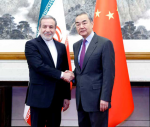You are here
What is most needed now
Feb 08,2018 - Last updated at Feb 08,2018
It goes without saying that no one, in Jordan or elsewhere, likes price or tax hikes. It goes without saying also that many families in Jordan, especially poor and middle-class, have been hard hit as a result of the painful twin processes of lifting governmental support on several essential commodities, and imposing new and further taxes on so many consumer goods and services.
To be sure, therefore, people have the right to complain, criticise and — even — be angry.
Nevertheless, what is most needed and most helpful at this point in time, is open communication between the people and the government, as well as constructive ideas as to what should be done in these particularly difficult times.
Effective two-way communication is key. And so is empathy. In their absence, the government appears reticent, callous, and cruel; and the people unsympathetic, ignorant, and unpatriotic.
In their absence also, opportunists get in the way, wreaking havoc and causing a lot of distortion.
Someone with a grudge against the government will use the opportunity as a means to settle scores with it. And so will someone with an unfulfilled ambition of some sort, some predatory media outlet thriving on sensationalist discourse, some sadistic and masochistic social-media fanatics jumping at each and every opportunity to vent their negativity and venom, those who dance to the tunes of external forces which aim to fish in muddy waters and subvert, etc.
Communication and empathy, of which we are seeing little at present, trigger a fruitful dialogue, allowing the people to voice their concerns, and the government to respond and explain its position.
The immediate outcome of such healthy exercise is the breaking of barriers, as well as the erosion of negative and hostile feelings.
When people feel heard, and when they voice their concerns, they start becoming ready to listen and engage — and to give and take. When they feel taken for granted or ignored, hell breaks loose.
Simultaneously, when the government takes people's concerns seriously, it will have the opportunity to understand them and address them better.
Beyond this, some good ideas and some solutions may hopefully emerge.
The main, legitimate case that people have against the government — the current and the previous governments — is its inability to come up with long-term solutions to the country's age-old economic ills.
The main question they ask, and this is not a trivial question, is: cannot the government (or any of its arms) come up with solutions other than the lifting of subsidies and the imposition of taxes?
Frankly, people are sick and tired of government after government adopting nothing but the familiar old approach, year after year: helping itself to the "people's pockets".
Are there no other solutions, they ask? Should not the government's economists think outside the box? Why are the government's economic think tanks so helpless and bankrupt?
It is incumbent upon the government to address these questions, and explain why it is unable to come up with other solutions, if this is indeed the case. And if it is coming up with solutions, it should explain what these solutions are.
People, of course, understand that the circumstances the country is going through at present, both internal (with refugees, pressure on resources, etc.) and external (conflicts in the region, wars, scarcity of foreign aid, etc.) are quite extraordinary.
They understand also, taking into account the potential implications and dangers posed by these internal and external factors, that they have to put the country's survival and stability above and beyond all other considerations, including their own immediate qualms, needs and comfort. There is no compromise on this.
But the question they simultaneously ask, and a very legitimate one, is: for how long? Not so much for how long they have to wait until the current circumstances are over — because no one knows, and they most probably will never be over 100 per cent — but how long are they to wait until the government starts becoming more caring, smarter, and able to think of solutions while the crises are taking place, and not after they are over.
Governments can, and should, work in parallel: addressing emerging challenges and thinking of long-term solutions at the same time.
It should be emphasised, in this very context, that anyone who is familiar with the history of Jordan, from the inception of the Emirate of Transjordan in the 1920s until now, will know that nearly all eras in Jordanian history have been "extraordinary." Aside from periods of Indian summer here and there, Jordan has always faced and suffered from what we are facing and suffering from now: tensions and conflicts around us, unhealthy inter-Arab rivalries, Israel, influx of refugees into the country, pressure on resources, scarcity of Arab or foreign aid, etc.
While the immediate challenges for the government are both real and daunting, and while it is understandable that the government must take some tough, unpopular measures at times to make ends meet; its sole job should not be to take tough, unpopular measures.
It must take time, and make time, to think smart, to come up with other good solutions, to deliver results and be popular. Governments are not only collectors and takers, but also providers and givers.
It is only when the government recognises and honors this dual role that the people will be less cynical, less critical and less angry. And this is also what is most needed now.













